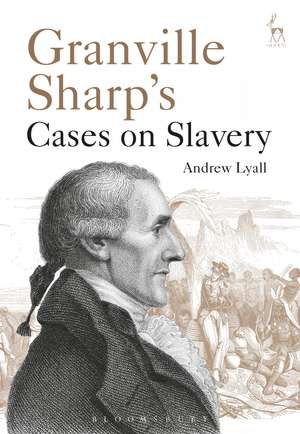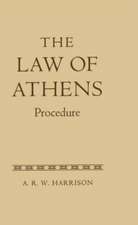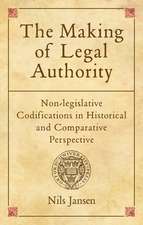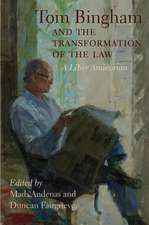Granville Sharp's Cases on Slavery
Autor Dr Andrew Lyallen Limba Engleză Paperback – 24 iul 2019
| Toate formatele și edițiile | Preț | Express |
|---|---|---|
| Paperback (1) | 244.64 lei 6-8 săpt. | |
| Bloomsbury Publishing – 24 iul 2019 | 244.64 lei 6-8 săpt. | |
| Hardback (1) | 518.10 lei 6-8 săpt. | |
| Bloomsbury Publishing – 22 feb 2017 | 518.10 lei 6-8 săpt. |
Preț: 244.64 lei
Preț vechi: 309.34 lei
-21% Nou
Puncte Express: 367
Preț estimativ în valută:
46.81€ • 48.87$ • 38.74£
46.81€ • 48.87$ • 38.74£
Carte tipărită la comandă
Livrare economică 05-19 aprilie
Preluare comenzi: 021 569.72.76
Specificații
ISBN-13: 9781509930111
ISBN-10: 1509930116
Pagini: 448
Dimensiuni: 169 x 244 x 35 mm
Greutate: 0.7 kg
Editura: Bloomsbury Publishing
Colecția Hart Publishing
Locul publicării:London, United Kingdom
ISBN-10: 1509930116
Pagini: 448
Dimensiuni: 169 x 244 x 35 mm
Greutate: 0.7 kg
Editura: Bloomsbury Publishing
Colecția Hart Publishing
Locul publicării:London, United Kingdom
Caracteristici
Groundbreaking original research on the law on slavery in England in the 18th century, including previously unpublished materials on three leading cases and analysis of their social and legal context.
Notă biografică
Andrew Lyall is a retired member of staff in Law at University College Dublin.
Cuprins
INTRODUCTION Granville Sharp (1735-1813) The Manuscripts Jonathan Strong The King (Lewis) v Stapylton Somerset v Stuart Gregson v Gilbert (The Zong) Black Servants Brought to England Factual Background State of the Law The Case Law Blackstone The Royal Navy The Cases Jonathan Strong The King (Lewis) v Stapylton (1771) Somerset v Stewart Versions of the Judgment The Order Scope of the Judgment Attempts to Evade Somerset Habeas Corpus and Foreigners Slave Law in the Colonies Villeinage in England Gregson v Gilbert (The Zong) The "Absolute Necessity" Marine Insurance and Slave Trade Acts Navigation and the Longitude Problem Did it Really Happen? TRANSCRIPTIONS Jonathan Strong King (Lewis) v Stapylton Proceedings in the King's Bench Motions for Judgment Granville Sharp's Argument Granville Sharp's Remarks on the Case Somerset v Stuart First Hearing in the King's Bench Third Day, "Second Hearing" in the King's Bench Lord Mansfield's Judgment 1. The Scots Magazine/Estwick version 2. Granville Sharp MS of the Judgment 3. Letter to the General Evening Post 4. Lincoln's Inn, Hill MS version 5. Lincoln's Inn, Ashhurst Paper Book 6. Lofft's Report Sharp's Memoranda on Somerset v Stuart Gregson v Gilbert The Declaration in the King's Bench Proceedings on a Motion for a New Trial Letter from Granville Sharp to Admiralty An Account of the Murder of Slaves on the Zong Letter from Granville Sharp to Duke of Portland Bill in the Court of Exchequer James Kelsall's Answer Gregson's Answer Extract from Martin Dockray MS Minor Cases De Grey Opinion Cay v Crichton Hylas v Newton Sharp's Remarks on Hylas v Newton Legislation Habeas Corpus Act 1679 Act of the Scottish Parliament, 1701 c 6 Slave Trade Act, 1788 Slave Trade Act, 1793 Slave Trade Act, 1798 Slave Trade Act, 1799 Letters Letter from Blackstone to Sharp Letter from Dr Fothergill to Sharp Blackstone's Commentaries
Recenzii
The number of cases, some unreported, is extraordinary and will be a boon to legal historians working on colonial slavery. This book augments the extant scholarship on slave status and Somerset, as it lends additional sources to further develop and understand these complex legal issues.













